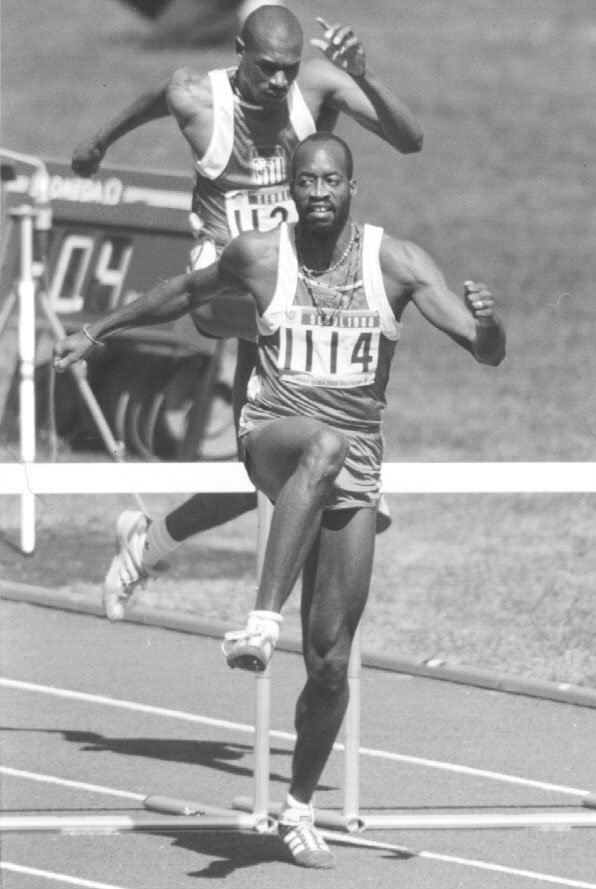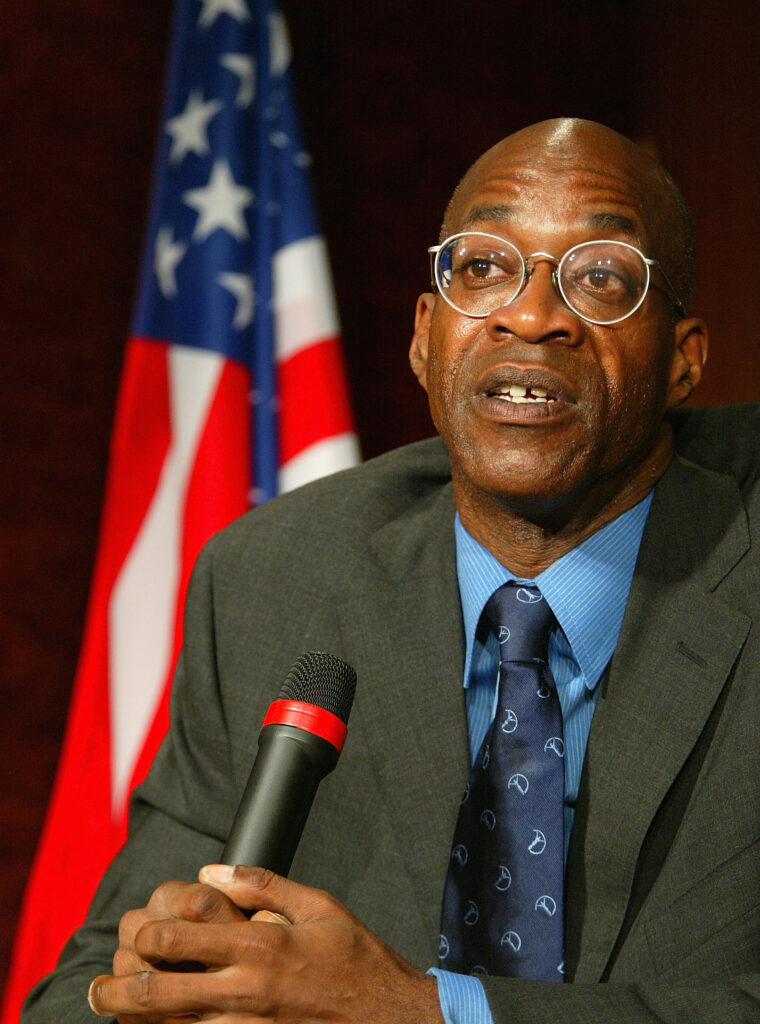Edwin Moses, winner of two Olympic gold medals in the 400-meter hurdles, was the dominant figure in his sport for more than a decade. Moses is also an accomplished businessman, community volunteer, and pioneering advocate against steroid use by Olympic athletes.

Courtesy of Atlanta Journal-Constitution.
Edwin Corely Moses was born on August 31, 1955, in Dayton, Ohio, the second of three sons to parents who were both educators. He was a serious student, even foregoing potential athletic scholarships to college in favor of attending Morehouse College in Atlanta, where he earned a bachelor’s degree in physics in 1978. He later earned his master’s degree in business administration from Pepperdine University in Malibu, California.
Although Moses initially played both basketball and football in high school, he soon turned to and excelled in gymnastics and track. While at Morehouse, which had a track team but no track of its own, he used public high school facilities in Atlanta to train for the 1976 Olympic trials. He won trials in the 400-meter hurdles, setting a national record of 48.3 seconds, and made his first Olympic team.
In his first international competition, at the 1976 Summer Olympics in Montreal, Canada, Moses won gold in the 400-meter hurdles, setting Olympic and world records with a time of 47.63 seconds. He was denied the opportunity to defend his gold medal at the 1980 Olympics in Moscow, Russia, when U.S. president Jimmy Carter ordered a U.S. boycott of the games. During the 1984 Olympics in Los Angeles, California, Moses again won the gold medal, becoming only the second man to win two gold medals in the 400-meter hurdles. (American Glenn Davis was the first, winning gold in 1956 and 1960.)
From August 1977 to May 1987, Moses won 122 consecutive races in his event. In June 1987 fellow American Danny Harris, who finished second in 400-meter hurdles in the 1984 Olympics, beat Moses by .13 seconds to end the winning streak.
In the 1988 Olympics in Seoul, South Korea, Moses ran his fastest Olympic final but finished third to take the bronze medal. Moses retired from track afterward but took up bobsledding and won the bronze for two-man teams in a 1990 World Cup race in Germany.
Moses began speaking out against anabolic steroid use in 1983, when he became a member of the Athletics Congress (the former name of USA Track and Field, the country’s governing body for the sport), and he eventually led the movement for drug testing to discourage amateur athletes from using the substances. As a result of his work with the Athletics Congress, which he left in 1989, Moses was nominated in 1992 to serve on the International Olympic Committee (IOC) Medical Commission. In 1997 he became president of the International Amateur Athletic Association and since 2000 has been a member of the IOC Ethics Commission, which monitors the world’s most stringent random in-competition drug testing systems.

Courtesy of Atlanta Journal-Constitution.
Moses has also worked with the Special Olympics, the Goodwill Games, and the U.S. Olympic Committee’s Olympic Festival. He has served on numerous boards and committees dedicated to improving amateur athletics and has volunteered his time to such nonprofit organizations as the United Negro College Fund and the United Nations Children’s Fund, known as UNICEF. He is also a founding partner of the Platinum Group, an organization that helps athletes with business ventures. Moses was elected to the National Track and Field Hall of Fame in 1994, the same year he received his degree from Pepperdine University.
In August 2003, on his forty-eighth birthday, Moses announced a “limited comeback” to the track arena, stating that he planned to participate in masters competitions. He also planned to attempt the Olympic Games “B” qualifying standard of 50.5 seconds in the 400-meter hurdles, which would have set a world record in the male forty-five age group, but he did not qualify in the 2004 Olympic Trials.
Moses continues to promote athletics for people of all ages and travels to such countries as Australia, India, and South Africa to offer exhibitions and clinics for Laureus World Sports Academy, an international program that provides young people with sports opportunities. As chairman of Laureus, Moses also fundraises for its programs. Additionally, he is a consultant for Salomon Smith Barney. From 1982 to 1991 Moses was married to Myrella Bordt. He has one son.







